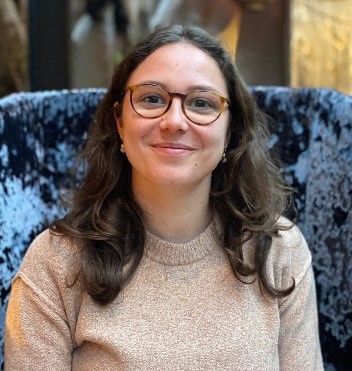At 12:30pm on 15 April, Charlotte Debeuf will give a talk that seeks to explore the erosion of trust in international climate negotiations by uncovering the subjective dimensions of climate finance.
Date: 15 April 2025
Time: 12:30 -14:00
Location: Hybrid - Roeterseilandcampus - Building M and online
Room: REC M0.01
Registration link to follow

Structural challenges in climate finance negotiations
Major issues in climate finance continue to undermine the participation and trust of developing countries in international climate negotiations. Promised funding was not mobilized, and a lack of clear definitions and complex financial structures further complicates accountability. As a result, developing countries struggle to secure the necessary resources to address climate change, while also facing imbalances in mitigation and adaptation finance. These structural challenges contribute to a growing erosion of trust, particularly among African nations, whose participation in the UNFCCC process is crucial despite their minimal contributions to global emissions.
Integrating subjective perceptions of climate finance
While these objective challenges are well-documented, this talk highlights the importance of uncovering the subjective dimensions of climate finance. Specifically, drawing on interviews conducted at COP27 in 2022, it examines how African policymakers perceive climate finance donors and the implications of these perceptions for trust and engagement in global negotiations. Given that perceptions shape behavior, understanding these subjective elements is essential for rebuilding trust and ensuring meaningful participation in international climate action.
About Charlotte debeuf
Charlotte Debeuf defended her PhD dissertation in December 2024 at KU Leuven, Belgium. The thesis entitled “It’s not all about the money. A multilevel Actor Perspective on Carbon Pricing and Climate Finance in sub-Saharan Africa” explores carbon pricing and climate finance, focusing on the actors involved at the national, regional, and international levels. While vital for addressing climate change, climate finance remains unpredictable and insufficient for sub-Saharan Africa. Since 2015, several countries such as Senegal and Côte d’Ivoire have shown growing interest in carbon pricing, primarily as a revenue source. Through four empirical studies based on document analysis and interviews conducted in Côte d’Ivoire, at COP27, and online, this thesis demonstrates that climate finance and carbon pricing are about more than money. They involve trust, perceptions, cooperation, capacity building, and policy framing.
Charlotte holds a bachelor’s degree in political science and a master’s degree in international politics, both awarded by KU Leuven. At the moment, she works as a research support officer for the Faculty of Social Sciences, KU Leuven.
